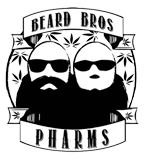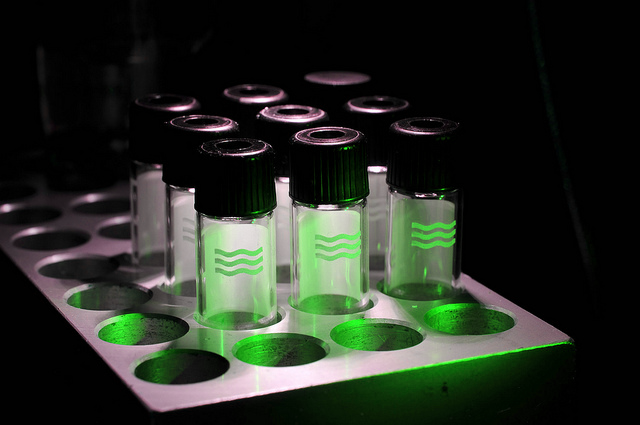
For those resourceful enough, lucky enough, or just plain rich enough to have navigated through the licensing process with the California Bureau of Cannabis Control, an entirely new set of challenges awaits.
The level of oversight contained in the proposed regulations that will govern the legal adult use recreational cannabis market in the 5th largest economy in the world is something unseen in any other industry.
Many of these regulations that are expected to be finalized and released to the public by mid-January 2019 are logical and necessary to promote a legal and level playing field, but far too many are nonsensical to their core and threaten to make compliance next to, if not totally, impossible.
Then there are the provisions in these new regulations that wear both of those disguises. One such necessary evil that is currently under more scrutiny than ever is third party laboratory testing on cannabis products bound for the struggling legal retail weed market in California.
When headlines of a NorCal lab falsifying test results for the past four months or so came out recently, though infuriating, it really caused many industry vets to shrug it off as another “told-ya-so” moment.
That story is one that anyone can read about and understand, but the real story goes deeper than one bad employee in one loose lab.
As we wrote on the subject at the time, there are now 47 accredited testing labs licensed by the state, and pretty much all of them have slightly different equipment, and slightly different calibrations, and slightly different SOPs.
These slight variations carry over to the results of the tests that the industry is relying on for compliance, so one sample batch tested twice at the same facility can produce two different results. Send that batch to two or more unrelated labs and watch the numbers scatter further.
Though these differences may be small on paper, the regulations set forth by the state give little to no room for error.

In other words, if you create an edible product and you are aiming at the 100mg limit, you would pay to have the batch pre-tested for research and development purposes prior to the final compliance testing ($$$).
With your expensive R&D testing complete you confidently label and package your product as containing 100mg and send it off for compliance testing ($$$$). As long as that test comes back showing that your product falls at or under 100mg, you are good to go.
If, however, that final test on the same exact batch puts your total package THC at 100.1 or more milligrams, that product in non-compliant and cannot go to the retail market. For most types of edibles, there is no way to reformulate a finished, packaged batch and so it is written off as another costly loss (-$$$$$)
We are not lab techs, but we know some and they all strike us as intelligent and honest people. Which leads us to believe that lab testing weed is still an inexact science even with the best intentions behind it.
This fact is lost on state-level regulators and rule makers and it is chipping away not only at the integrity of cannabis testing – which can absolutely be useful and is certainly necessary – but it is also eroding the integrity of legal cannabis as our industry appears to not be able to properly manufacture or label the same goods we’ve all been safely dealing with for years.
47 labs are not enough. Failing to mandate a very specific and uniform set of standards and procedures for them all to comply with is baffling.
Prop 64 feels like it is setting all grassroots operators up to fail and that they are using their unrealistic expectations of these labs as another mechanism to do it.
While the requirements set by the state of California for cannabis lab testing are pretty much on par with other legal adult use markets like Oregon and Washington, it was overambitious for California to expect to emulate that on such a larger scale right out of the gates using demonstrably inaccurate testing as the benchmark.
Colorado, for example, led the way for recreational marijuana legalization way back in 2014, but just began requiring pesticide testing this year. That might not be the exact approach that Cali should take, but easing into lab testing regulations with wider margins of error would have been a more fair way to start.
Right now it feels like there are two groups making money in the legal weed market in Cali
-
The state itself along with tax-gathering cities and counties
-
Testing labs
A quick look at information released by the Bureau of Cannabis Control shows that the top two tiers of anticipated tax revenue are distribution and, you guessed it, lab testing. So even the BCC acknowledges that is where the money is at.
One single licensed grow might have a dozen different strains, all of which have to be tested individually and repeatedly in the R&D/compliance cycle we’ve discussed.
When inaccurate and varying test results lead to a product being denied passage to the retail market, or worse, leads to the need to recall the product back from retailers after it has gone out to the market, those crippling costs almost always fall back on the grower or manufacturer.
No matter what, the lab gets paid. There are not many other stops on the supply chain that can say that.
But in more extreme cases, like if a lab is knowingly faking results and there are likely to be countless recalls required as a result, some liability needs to fall back on the lab itself.
Perhaps tighter contracts need to be formed between growers/manufacturers and labs so that everyone is held accountable.

Maybe these 47 labs can get together and communally come up with an agreed upon transparent set of standards for receiving, transporting, storing, preparing, and testing the product in an attempt to salvage the respect that their sector is losing.
Of the 47 labs operating today in California, we are confident that the vast majority of them are in this industry for the right reasons and apply that dedication in an honest and well-intentioned manner at every step of the way.
But until their technology advances enough to close these gaps in accuracy, or the state loosens the law enough to account for those gaps, testing labs may need to meet their customers in the middle in order to protect the small to midsize producers at the essential grassroots of this potentially lucrative and efficient market.
Keep updated on all the latest news and updates in the Cannabis industry here at Beard Bros Pharms by signing for our Friday Sesh Newsletter here. Always Dank and Never Spam!





















